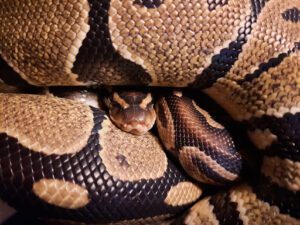
- 1 year health guarantee for all our exotic pets on sale
- [email protected]
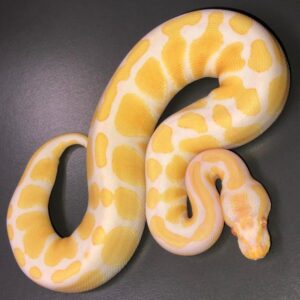
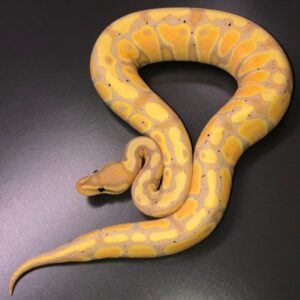
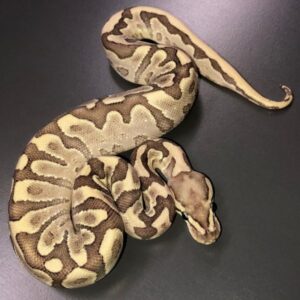
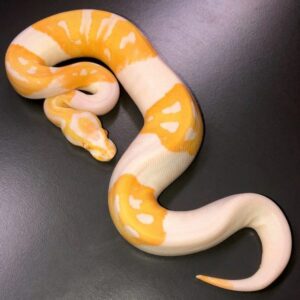
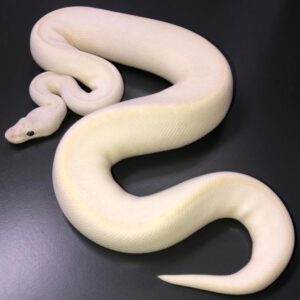
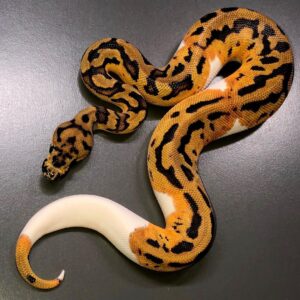
Are you a ball python lover or do you want to buy a ball python? Shop on our website we are selling the world’s top best types of ball pythons. These ball pythons are well treated and medically fit. We have multiple choices for you. We are offering multiples discounts. We have ball pythons for sale.
Ball pythons have become an overwhelming part of the reptile trade in the last decade. Finding ball pythons for sale online is an experience that will introduce you to a large group of professional as well as hobbyist breeders. We have had the benefit of producing ball pythons for the last 3 decades and we can give you guaranteed genetics, healthy animals, and competitive prices every day of the week. Before going any further you should read about the perfect tank setup by clicking here.
Ball pythons are non-venomous snakes. They are popular as pets because of their generally docile existence. However, it is possible for a ball python to bite you.
Our ball pythons for sale can be considered ball pythons for sale near me because it doesn’t matter where you are located, we can always make it work for you.
Ball pythons are considered medium-sized snakes. The average ball python is 4 to 5 feet long, although they can grow to be 6 feet. They usually weigh 3 to 5 pounds and have small heads and thick bodies.
Pythons have unique characteristics that help them survive in the wild:
What do ball pythons look like? Ball pythons usually have an ivory belly and patterned scales. Their markings include large brown spots mixed with smaller, lighter brown spots and darker spots. To identify a ball python, you can look for yellow stripes running from their nostrils to their eyes. Every four to six weeks, a ball python sheds its skin, a process that takes three or four days to complete.
Where do ball pythons live? In the wild, ball pythons are found in the region of Sub-Saharan Africa. They primarily live in large grasslands but can climb trees in the scattered forests nearby. Most ball pythons live in burrows in the ground. Ball pythons are nocturnal animals, patrolling at night for their next meal. During the day, ball pythons like to stay concealed by hiding under:
What do ball pythons eat? With the ability to expand their jaws, ball pythons eat rodents up to twice their head size. Their diet includes:
Ball pythons are not naturally aggressive animals, so they will not usually initiate a bite. In fact, when they are threatened, ball pythons retreat and hide, waiting to strike an aggressor at an impactful moment. After that, they ball up and hide their head to protect against a return attack. It’s still possible for a ball python to bite you, and their bites are painful. Ball pythons have around 150 teeth that are 1 centimeter long. With a hooked shape, their teeth hold prey as they constrict and kill.
Ball pythons (Python regius) are native to Central and Western Africa. They prefer grassland, savannah habitats, and farmland. Ball pythons spend most of the time under the ground in burrows. They are crepuscular, meaning they are most active around dawn and dusk. These snakes have labial pits on either side of their mouth which sense heat or infrared radiation, and are used most frequently to detect prey.
They lack eyelids, and instead their eyes are covered by a thin, transparent scale, known as the “spectacle”. This spectacle is shed regularly with the rest of the skin. Ball pythons have anal spurs which are thought to be the vestigial remains of hind legs. Males have longer spurs than females. These single claws appear on either side of the vent.
Ball pythons should be housed in enclosures that are twice as long and one time as wide as their length. Four feet in length is typical for ball pythons, requiring an 8ft x 4ft enclosure. All snakes are escape artists and can be especially powerful and cunning when it comes to breaking out.
Ball pythons are a ground-dwelling species, so longer enclosures are preferred over taller enclosures. The enclosure should be large enough to provide a wide horizontal temperature gradient. Caging should be made of sturdy, nonabsorbent material, such as glass, plastic, or Plexiglas.
For low maintenance enclosures, newspaper, butcher paper, and artificial carpeting are safe, easily cleaned, and inexpensive. For a more decorative setting, a bioactive substrate, or living substrate, containing a mixture of numerous bases, including peat moss, potting soil, finely shredded bark, sand, and clay can be used.
This type of substrate requires upkeep and demands close attention from the reptile’s keeper. You still need to clean out the feces and urates on a daily basis. Pine and aspen shavings should not be used because they can get lodged in the mouth and may even be toxic. Sand, loose dirt and walnut shell are also readily available but are not ideal, except within the environment of a bioactive substrate.
All snakes MUST have a place to hide within their enclosure. A minimum of two hiding boxes or logs should be provided. One should be available near the heating source, and the other placed at the cooler end of the enclosure. These hides are their sanctuary, and you should not bother them while they are hiding. Types of hides include a hollowed-out half-log, an empty cardboard box, terra cotta flower pots (with edges sanded down), or an upside-down opaque plastic container.
Ball Pythons are ectothermic (cold-blooded), thus requiring supplemental heat in captivity. Your python will need a basking site of 95°F. The warm side of the cage should be 80-85°F. The cool side of the cage should be no colder that 70°F. We strongly advise against using hot rocks. Hot rocks require direct contact to provide heat and frequently cause dehydration and thermal burns in reptile species. Improper heating gradients are the leading cause of illness in captive reptiles. When kept at too cool of temperatures, your python’s metabolism, digestion, kidneys, and immune system all function at a reduced capacity.
An appropriate photoperiod of 12 hours of light and 12 hours of darkness during the winter months, and 14 hours of daylight, and 10 hours of darkness during the summer should be provided to all ball pythons. The use of timers to maintain this photoperiod is recommended. Full spectrum lighting containing ultraviolet A (UVA; 320-400nm) and ultraviolet B (UVB; 290–320nm) radiation is suggested for all snakes, but might not be as important in ball pythons.
Ultraviolet light produces beneficial behavioral and psychologic effects as well as allowing for the production of vitamin D3, which plays an essential role in calcium metabolism. The only lights that can safely provide these critical wavelengths to your diurnal reptiles are the UVB/A producing fluorescents made specifically for the reptile pet trade. “Full spectrum” lights that look like incandescent light bulbs are incandescent light bulbs and are only for producing heat. They do not produce any UVB. The use of the term “full spectrum” can be grossly misleading, so be sure you are purchasing the correct bulbs.
Humidity is an often overlooked aspect of the captive environment. Even the most enthusiastic pet reptile keepers sometimes fail to install a hygrometer within the vivarium. Ball pythons require 50-70% humidity inside of their vivarium. Ways to increase humidity can be as simple as placing the water dish under the heat lamp.
Likewise, one can spray the side of the enclosure with tap water every 24-48 hours. To promote optimum health, providing a humidity hide allows your python to regulate their personal hydration within the cage. Providing a water bowl large enough for your snake to soak in when it wants can also achieve adequate humidity.
Low humidity levels can lead to dysecdysis (trouble shedding), and chronic dehydration. Too high humidity can lead to respiratory infections and skin disease in your ball python.
Ball pythons are carnivorous and consume their prey whole. Snakes should always be fed freshly killed or frozen-thawed prey items. Live rodents can inflict severe injury to a snake through biting and scratching. Growing ball pythons should be fed once weekly while adult ball pythons (those over three years of age) typically need to eat only once every two to four weeks, depending on the size of the food item, the time of year, and reproductive activity.
Ball pythons are known to not eat well in captivity, but any anorexia should be evaluated by a veterinarian. Feeding too frequently can lead to obesity and constipation. Mice and rats are the most readily available food sources in the pet trade. Food items should be a smaller than the largest diameter along a snake’s body. No vitamin or mineral supplements are required for ball pythons if fed previously healthy rodents.
Ball pythons are generally amenable to handling. Regular handling will allow the snake to become more comfortable with human contact. Always be gentle, and try to avoid sudden movements. The snake should be supported with both hands at all times, with one hand supporting the front half of the snake and the other supporting the back half. If the snake wraps around your arm, you can unwind it by gently grasping it’s tail and slowly unwrapping it from around your arm – do not try to unwrap it by moving the head.
Snakes should never be handled immediately before they are about to shed because they can be ill-tempered and more aggressive during this time. Likewise, do not handle your snake immediately before and after feeding. When transporting your snake, it is often best to place your snake in a cloth pillow case that is tied shut and then put into a plastic carrying case.
Reptiles and their prey items can spread Salmonella spp. and other pathogens. The CDC advises that the handler wash his/her hands after each contact with a reptile or its prey. Additionally, reptiles should not be handled by children under the age of 5 years, or by people with compromised immune systems.
With appropriate husbandry ball pythons can live well into their twenties. At Python nest, we recommend annual exams with a fecal parasite check for all our ball pythons. Other commonly encountered medical conditions include anorexia (not eating), dysecdysis (poor shed), respiratory disease, parasites, stomatitis (mouth infection), and trauma (thermal burns and rodent bites).
All of these medical conditions warrant evaluation by one of our exotic veterinarians. Our veterinary staff can help you with these, or any other issues you may be having, while also assisting in setting your ball python up for a long and healthy life.
You do not need to move an inch, your ball python will be shipped to your door, a majority of our ball pythons can be considered ball pythons for sale online too as your ball python will be shipped to your doorstep or to whatever location you prefer.
All you have to do is let us know where and when you want your ball python we will then take care of the rest for you. A lot of preparation goes into the shipping process because there is no room for problems.
We also offer Banana ball pythons for sale, they are not the only ball pythons that we sell but they are also on the list. Buying a Banana ball python doesn’t have to be a difficult or strenuous activity, we are here to serve you.
We actually have a variety of banana ball pythons on sale so do not hesitate or waste any time to go through our available list and pick one that best suits you.
Our banana ball python prices and quality are the best on the market, it is hard to have cheap banana ball pythons for sale and retain the quality which is the sacrifice so many other breeders make but not us, we prioritize quality over everything else. We believe it is the right thing to do and that is why we do it.
So if you choose to shop your banana ball pythons with us you are rest assured that you are getting the very best quality banana ball pythons at the very best prices.
The Banana Ball Python is a type of ball python morph that is famous for its strong yellow-colored blotches and dark freckles.
Banana snakes are selectively bred from the West African ball python species to produce a beautiful yellow and tan patterning.
They are very easy to handle, have a docile nature, and are very hardy and beginner friendly.
Despite the first clutch of Banana Ball Pythons selling for $25,000 in 2003 they are now much more affordable and can be purchased for $1,300.
We also offer Albino ball pythons for sale, they are not the only ball pythons that we sell but they are also on the list. Buying an Albino ball python doesn’t have to be a difficult or strenuous activity, we are here to serve you.
We actually have a variety of Albino ball pythons on sale so do not hesitate or waste any time to go through our available list and pick one that best suits you.
Our albino ball python prices and quality are the best on the market, it is hard to get cheap albino ball pythons for sale and retain the quality which is the sacrifice so many other breeders make but not us, we prioritise quality over everything else. We believe it is the right thing to do and that is why we do it.
So if you choose to shop your albino ball pythons with us you are rest assured that you are getting the very best quality albino ball pythons at the very best prices.
Albino ball pythons are one of the hundreds of ball python morphs.
This morph is very easy to spot with its white body, yellow markings and pink or red eyes.
Albinos make one of the best pet snakes for beginners.
They have a very docile temperament, are easy to care for and only grow three to five feet in length. This makes them a perfect snake to introduce you to the world of reptile keeping.
If there are any more things that you will like to know then do not hesitate to contact us so that we can assist you, we are present 24/7 and we will love to aid you to the best of our ability.
Also below are some articles that you can read to better understand and further your knowledge about these beautiful reptiles.
It is worth knowing that we do not offer just ball pythons for sale, we offer other exotic pets for sale too so if you are interested in looking into something else click one of the links below;
If you are interested in reading more about ball pythons then you should check out the link below so you can be better informed before going ahead to make the decision to buy a ball python as a pet.
Read more about ball pythons before you go ahead and buy one.
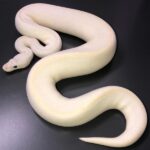
Copyright © 2025 Compound Exotics All Rights Reserved.